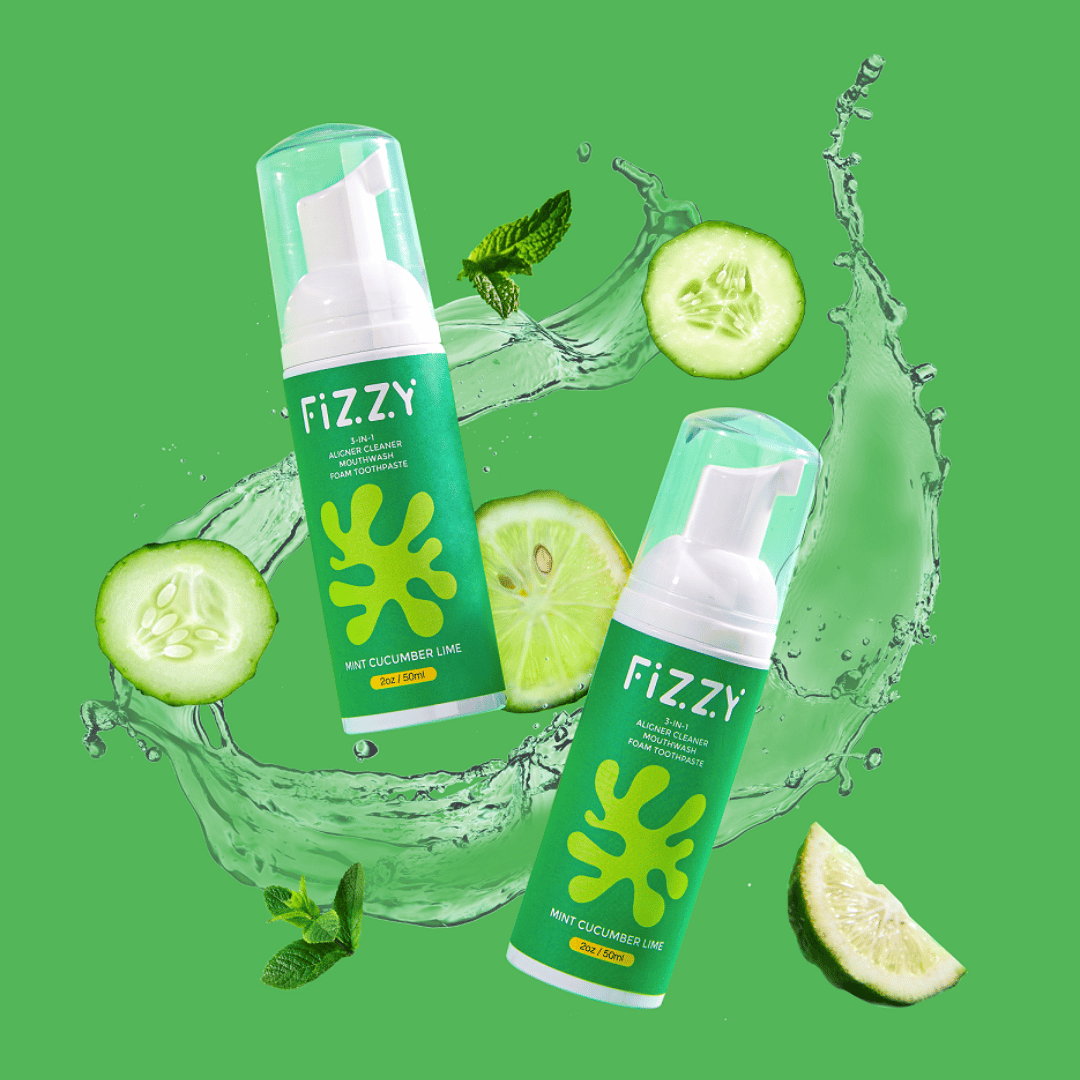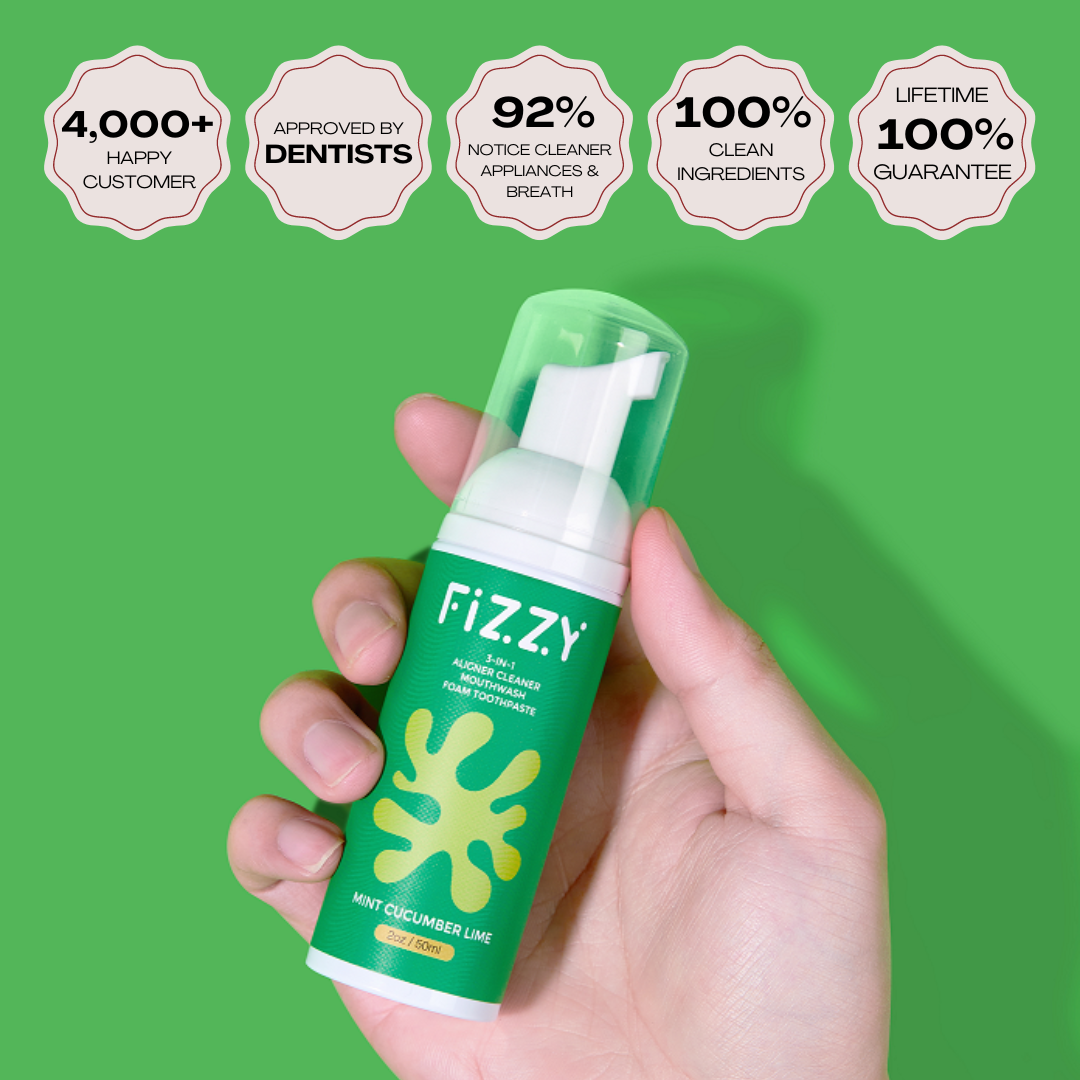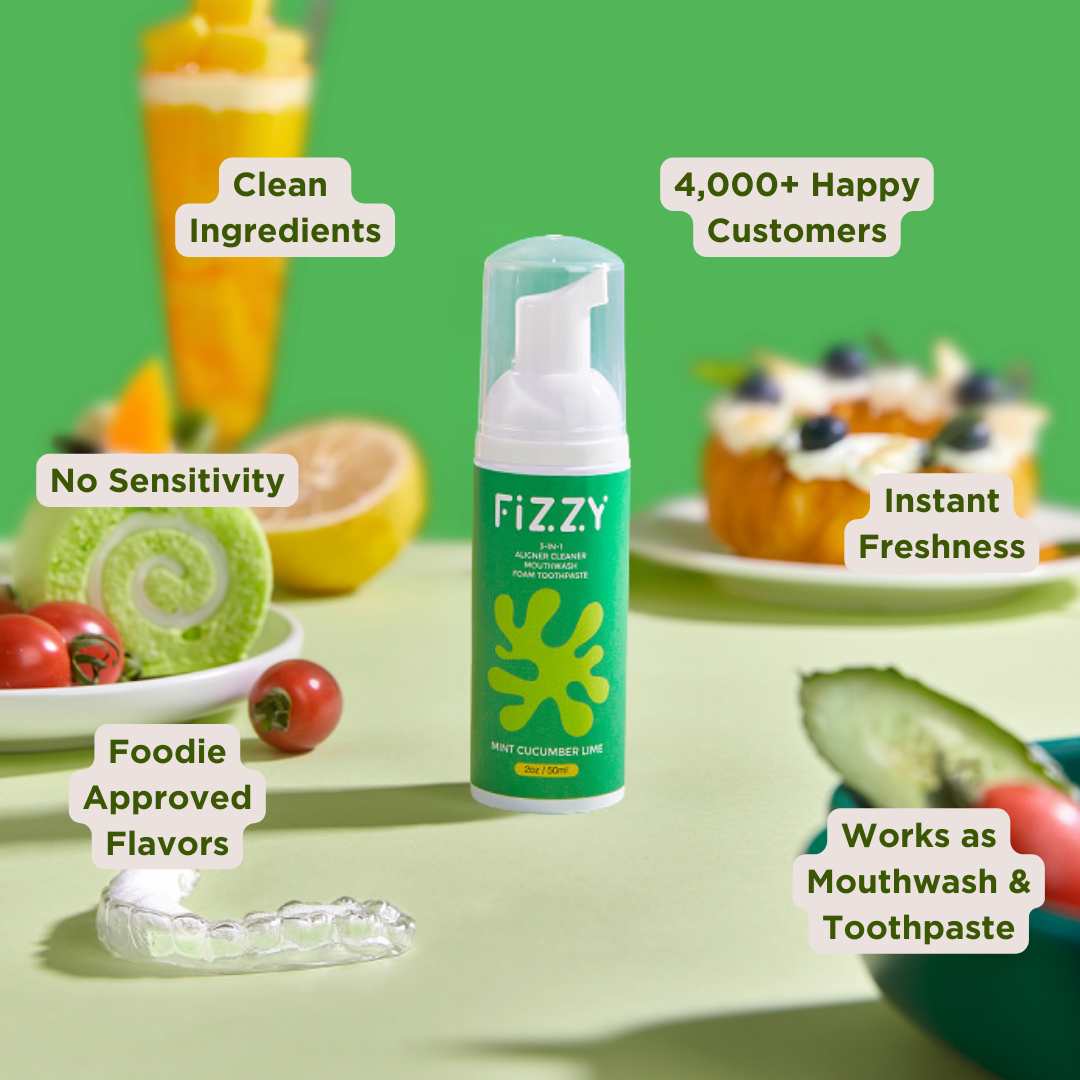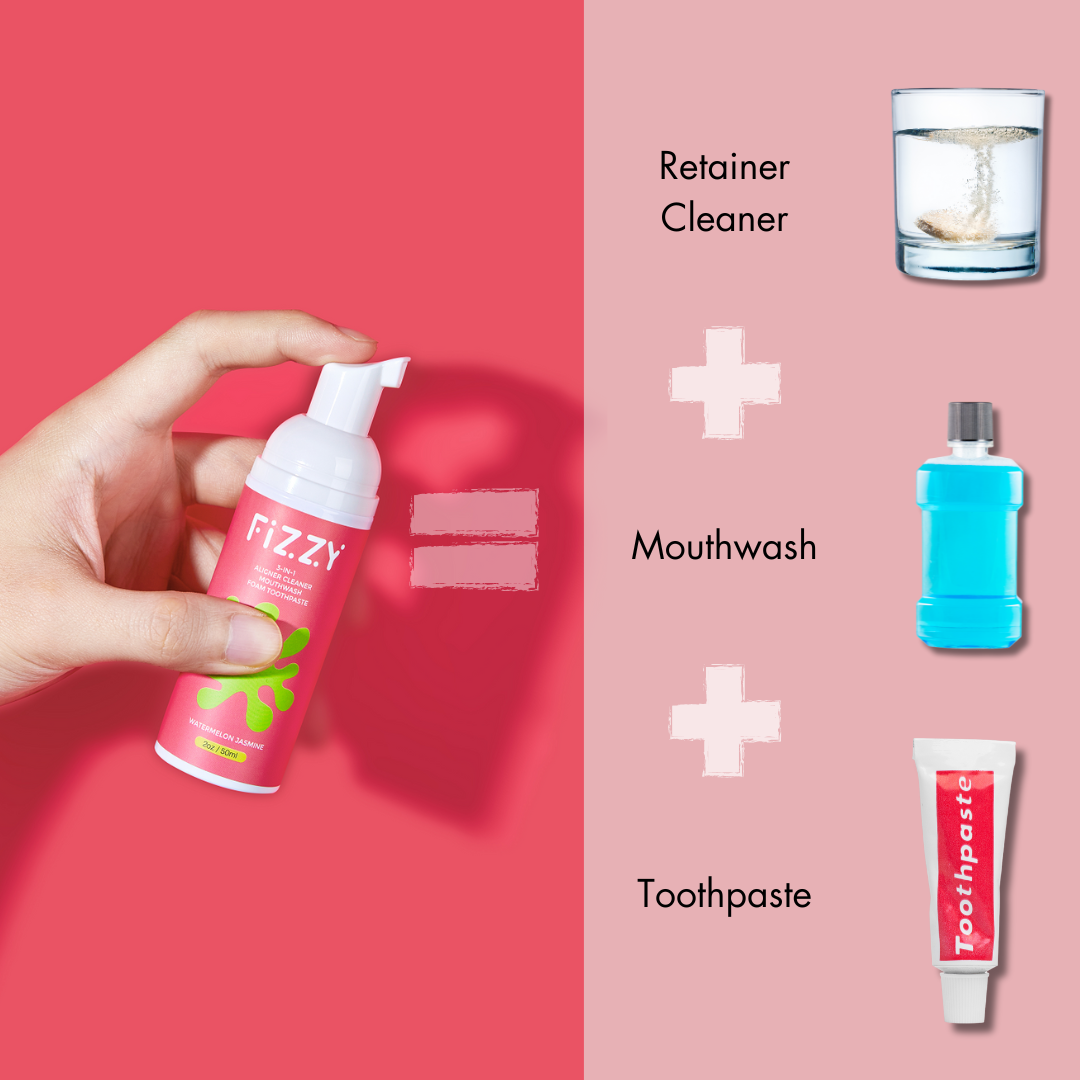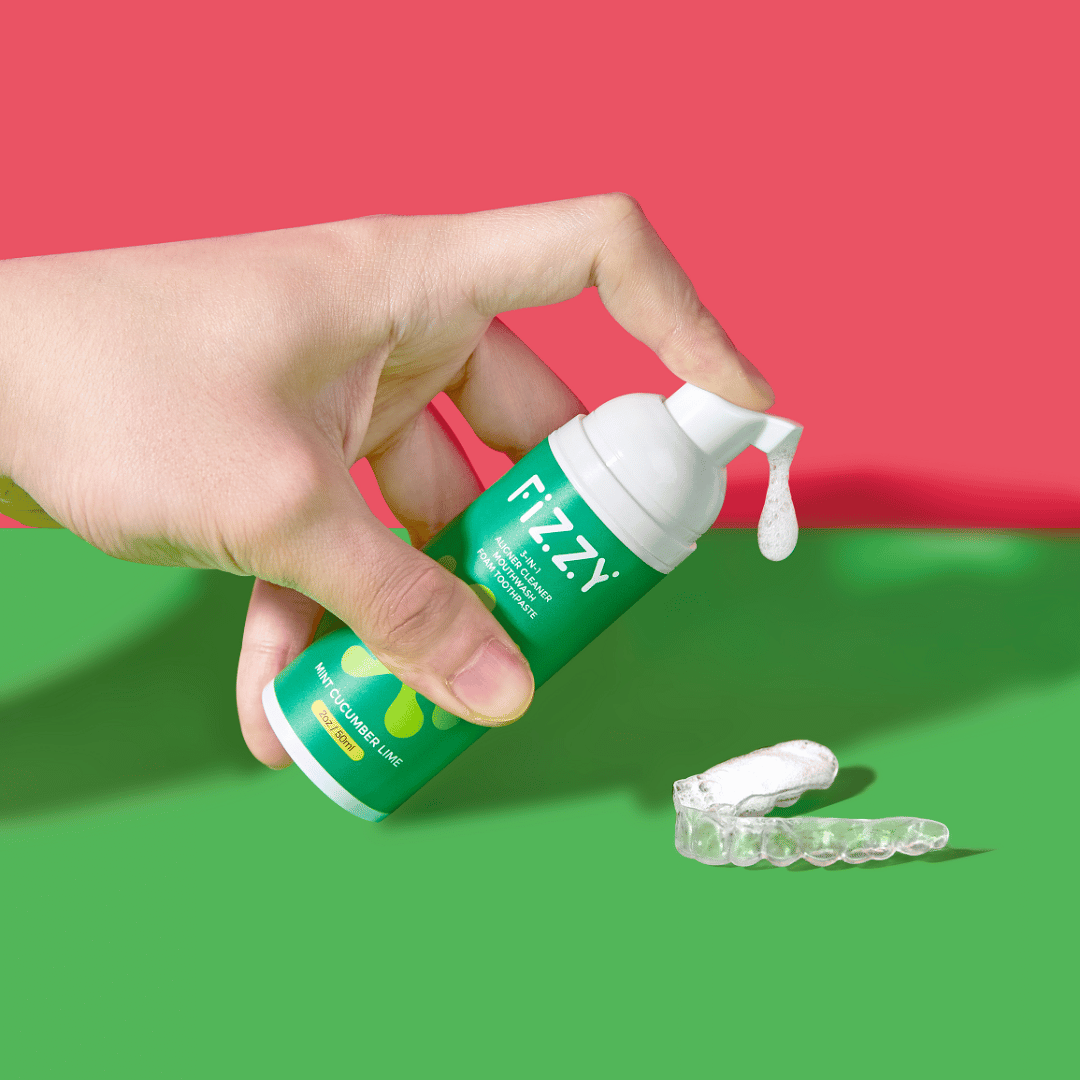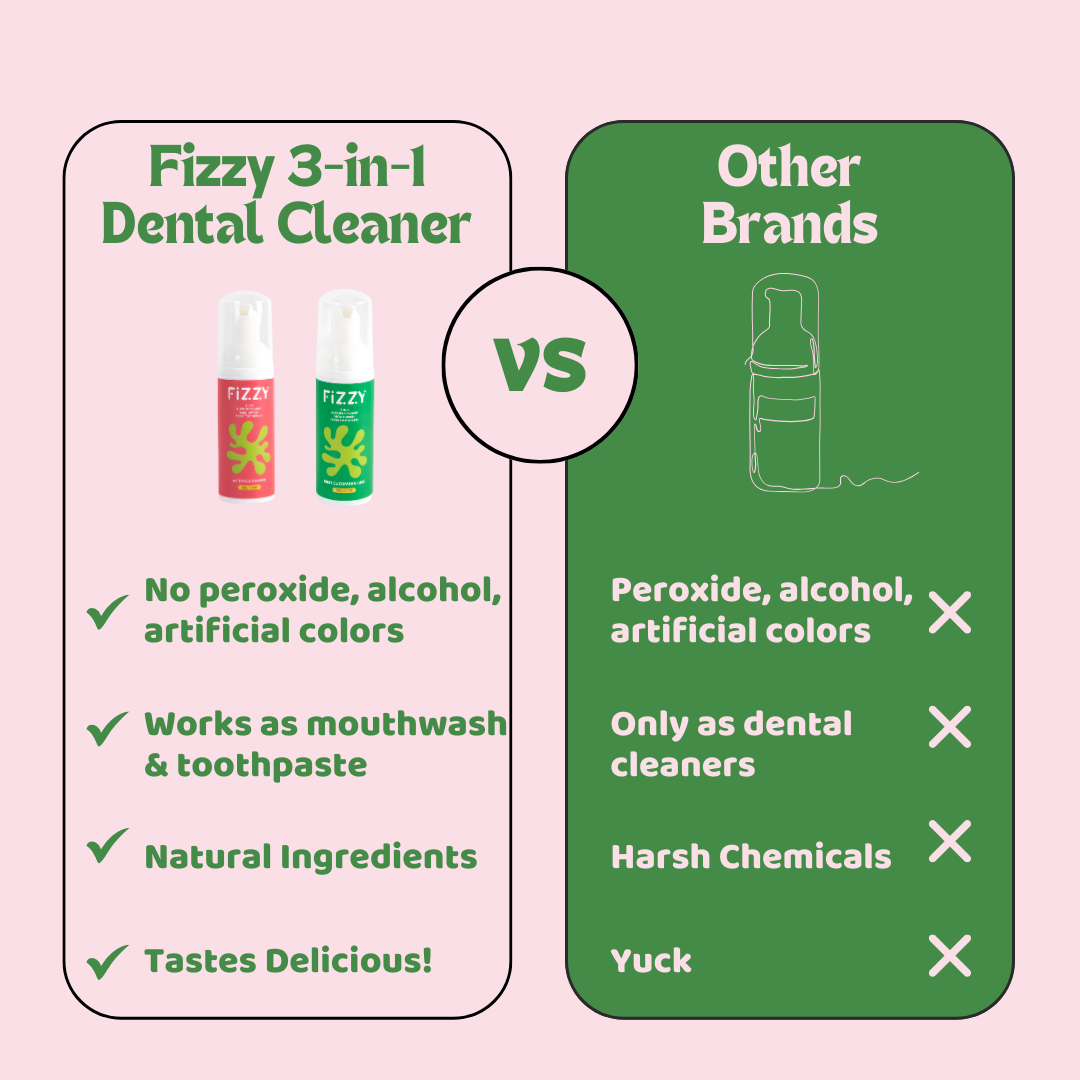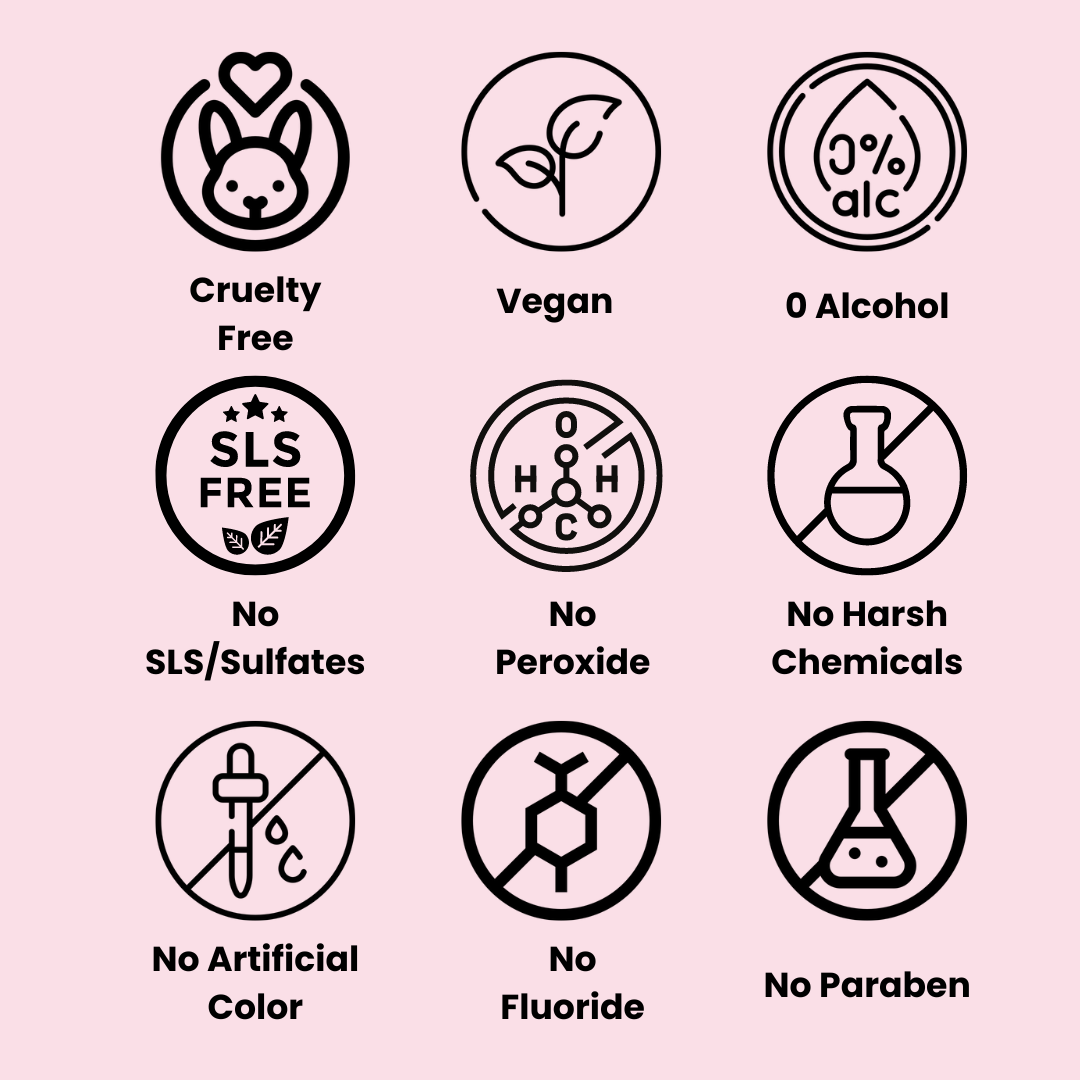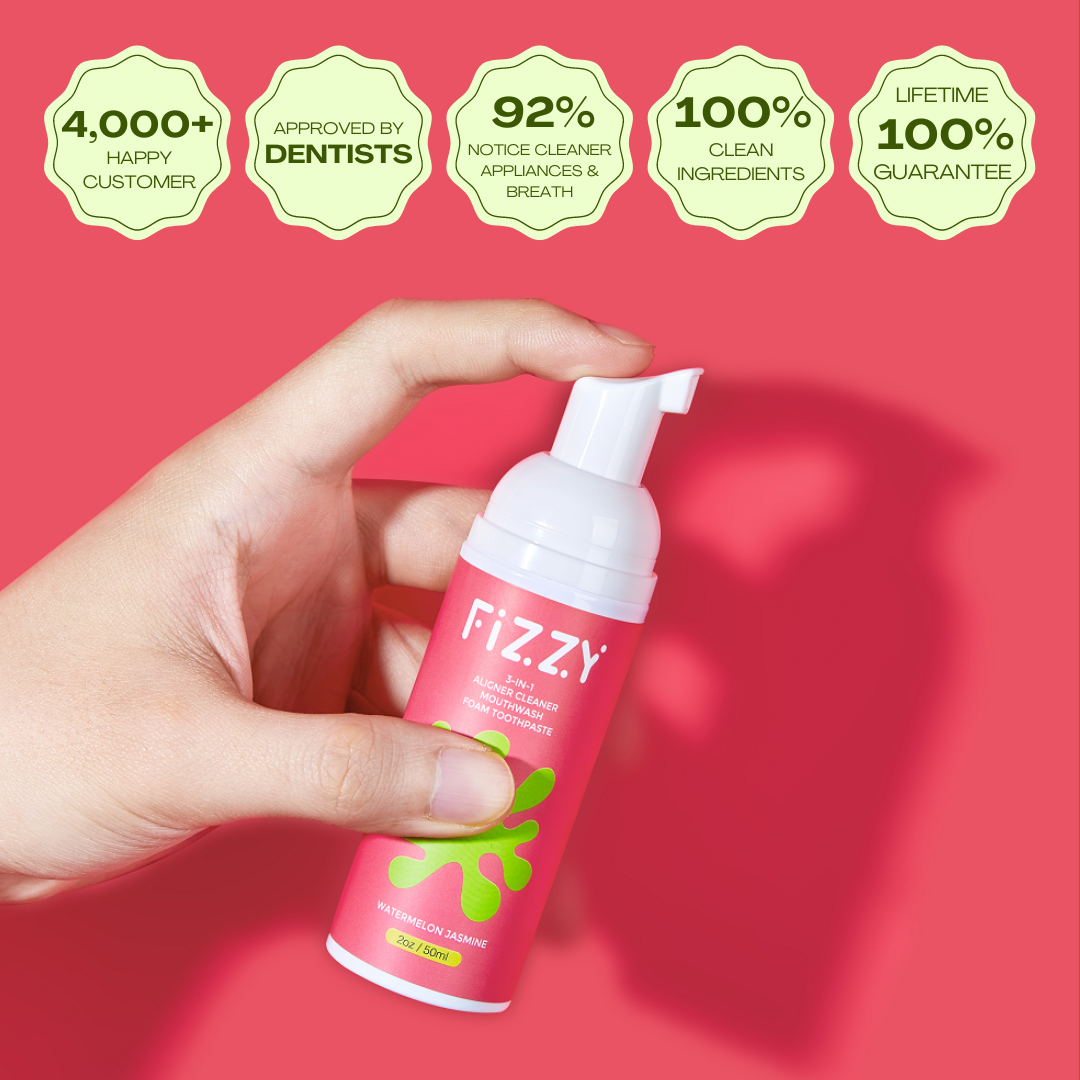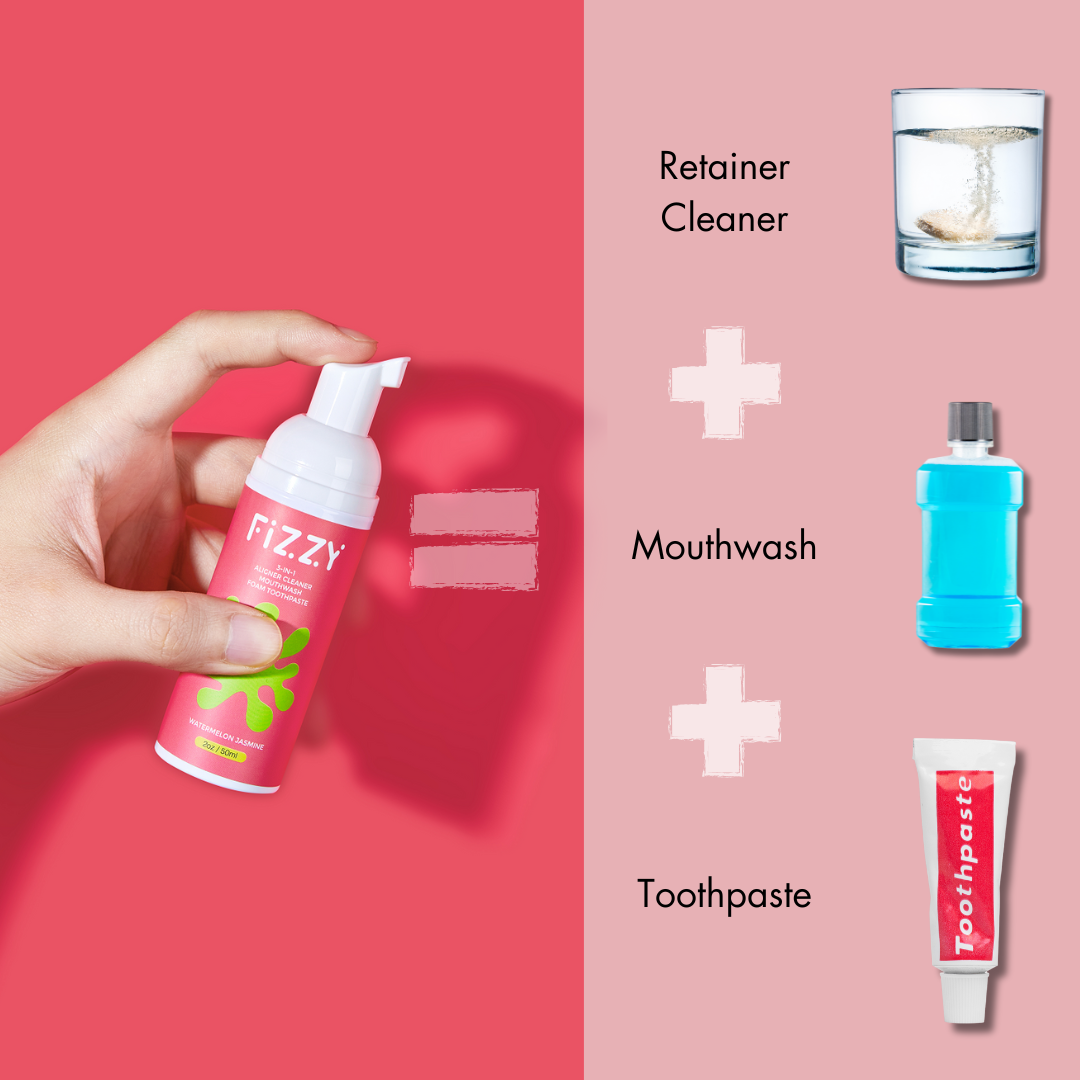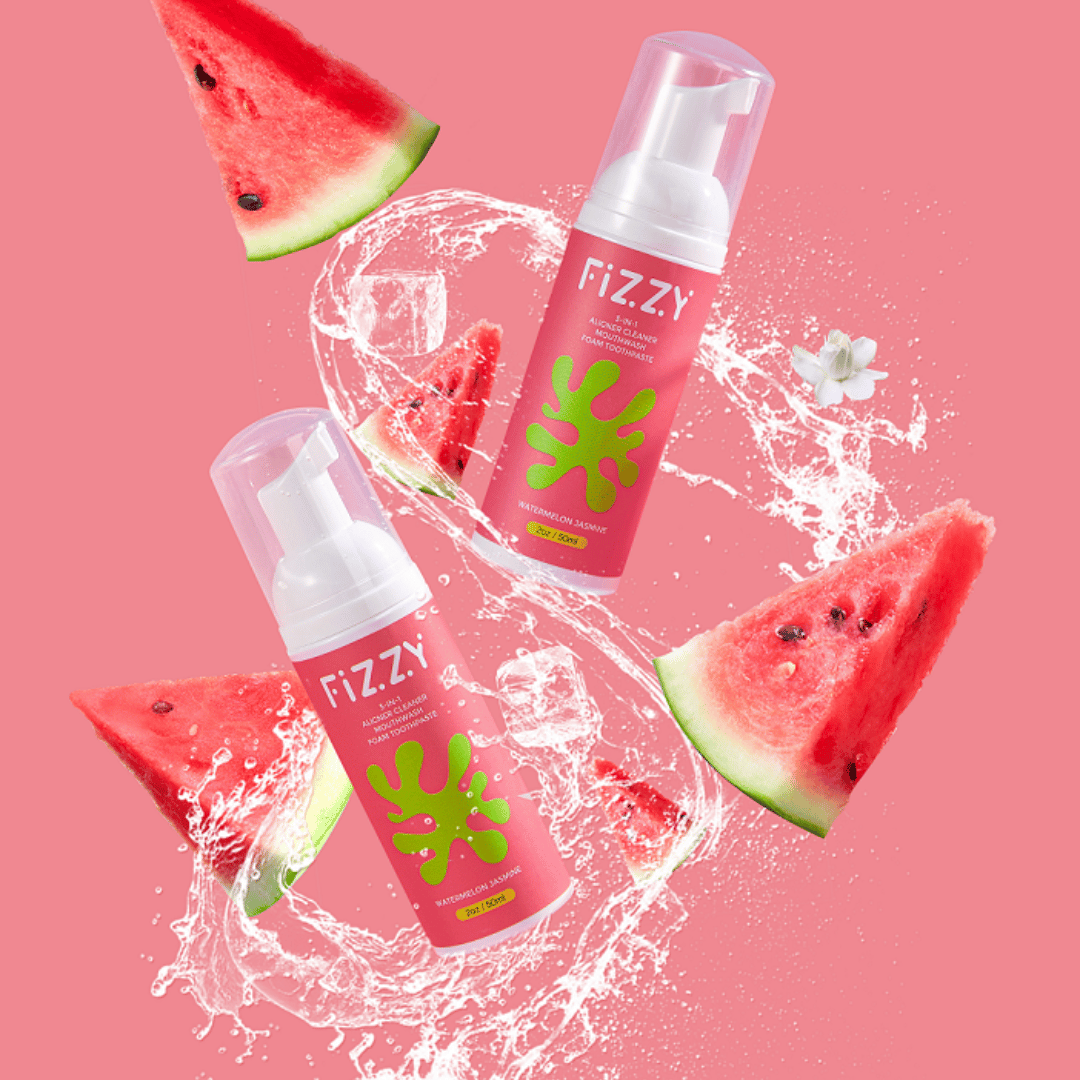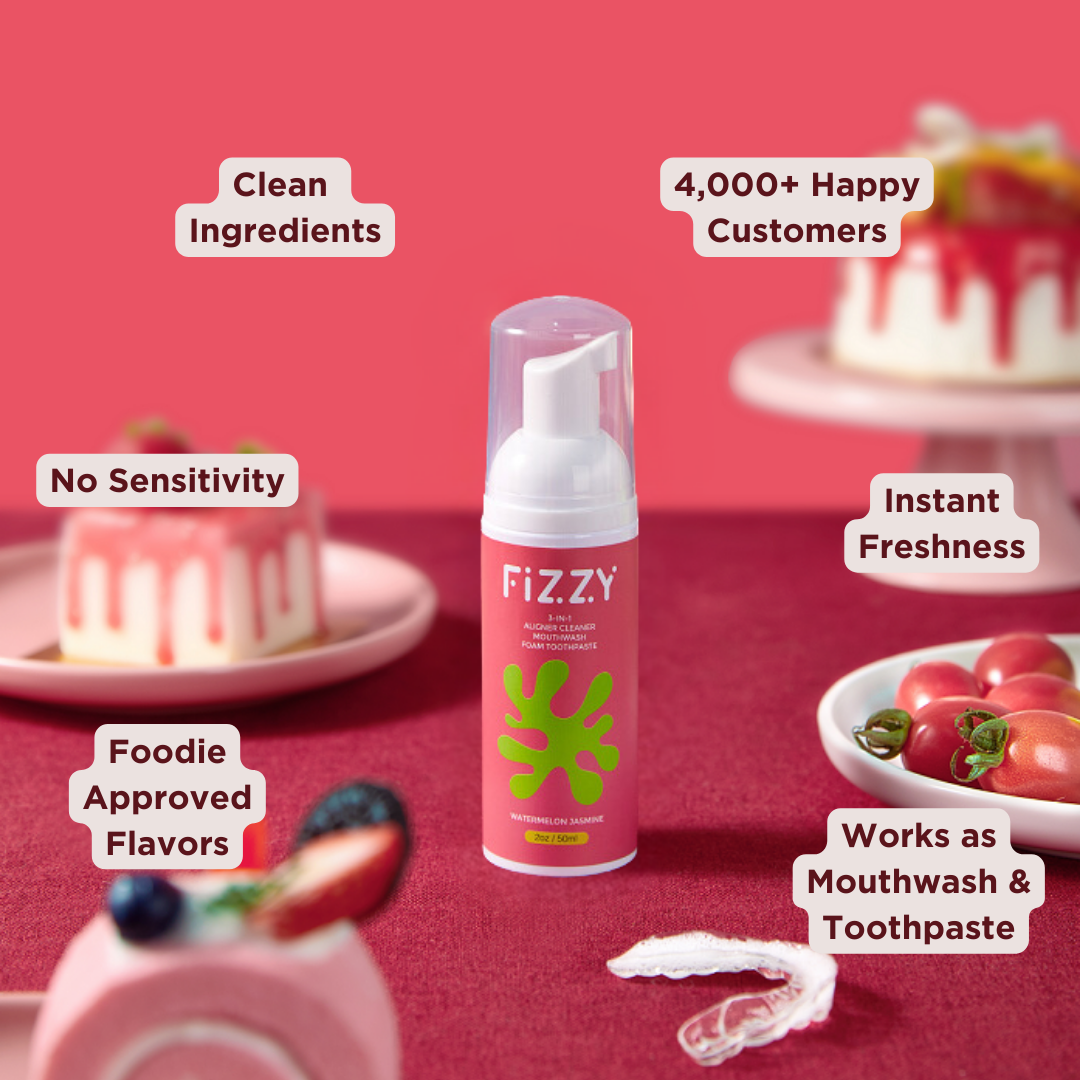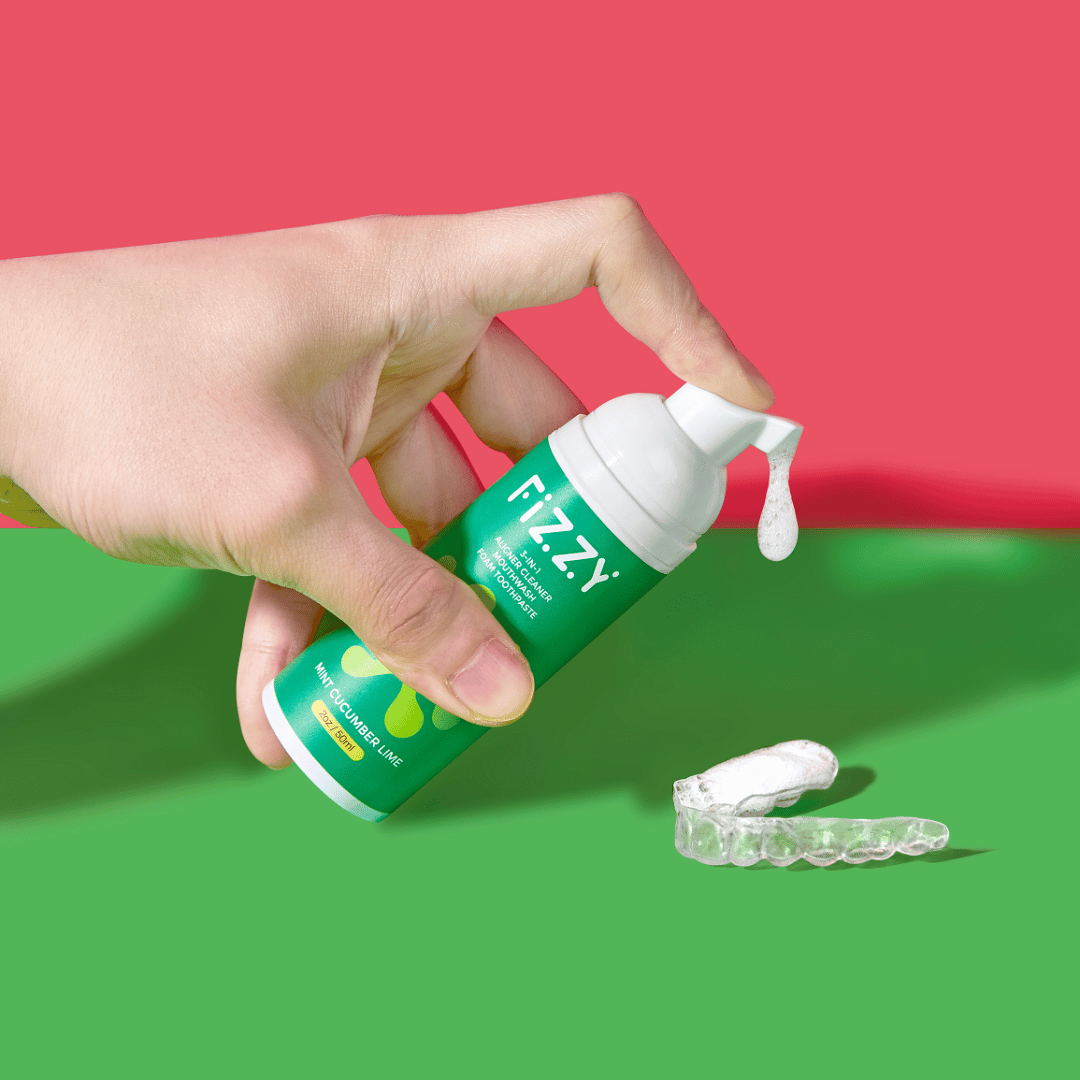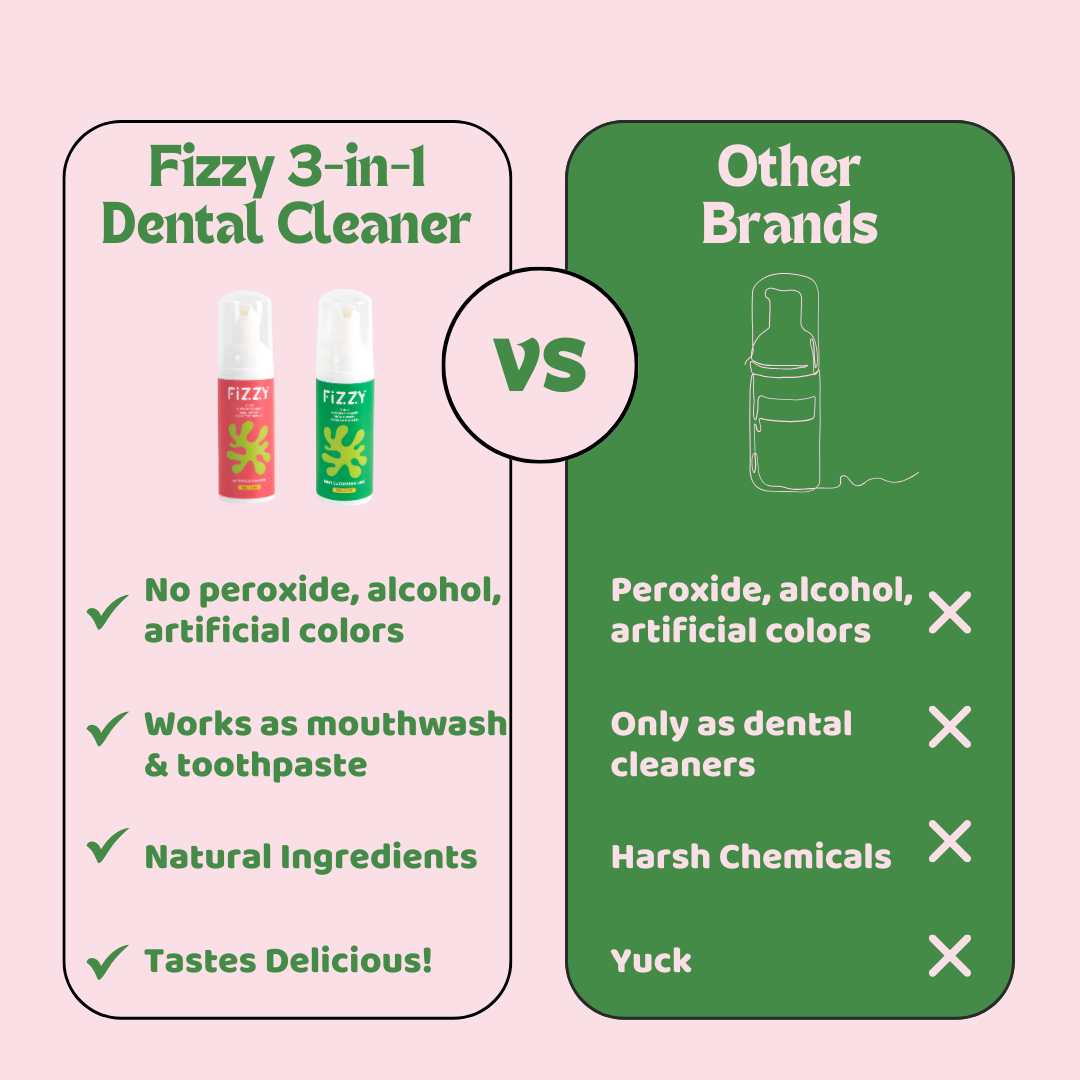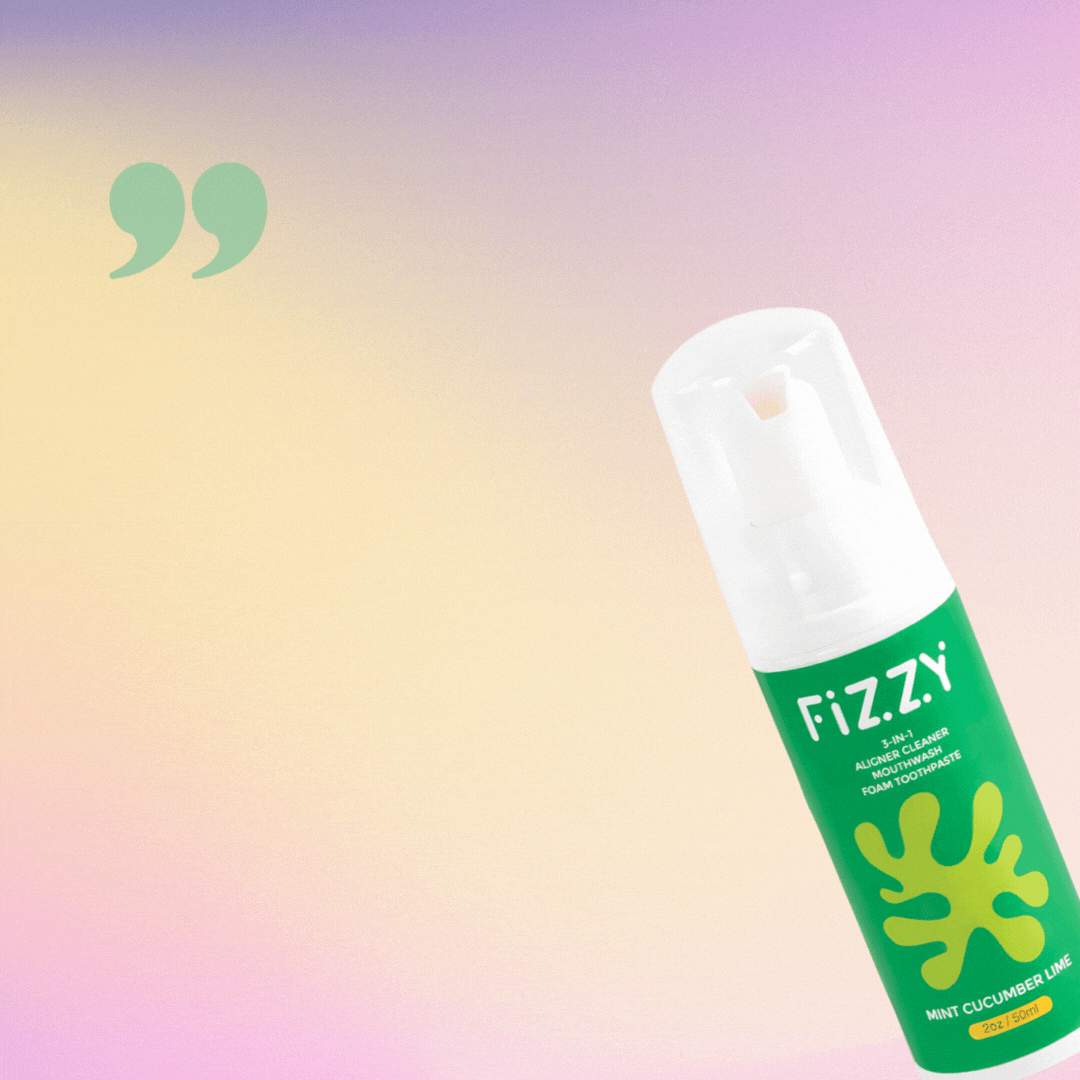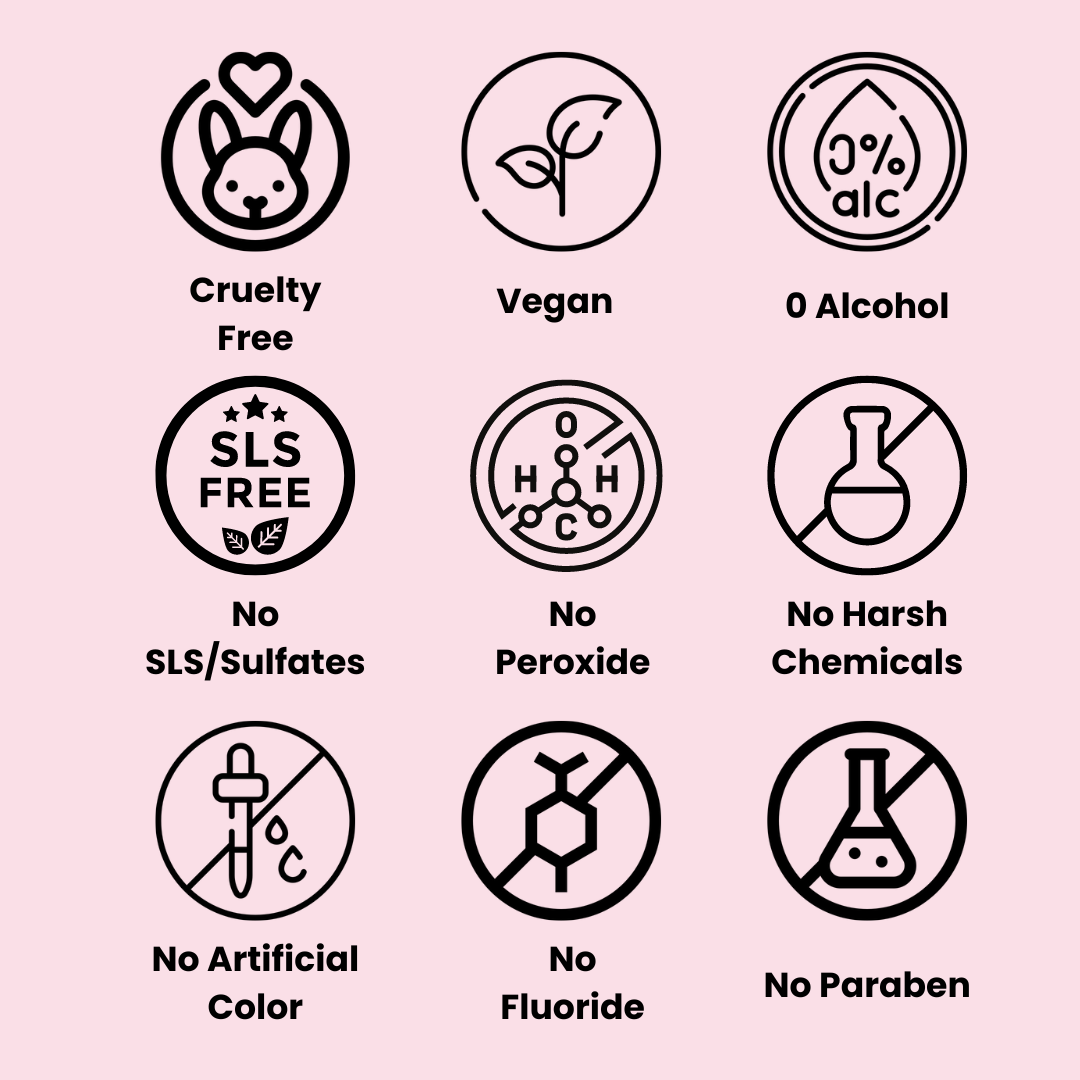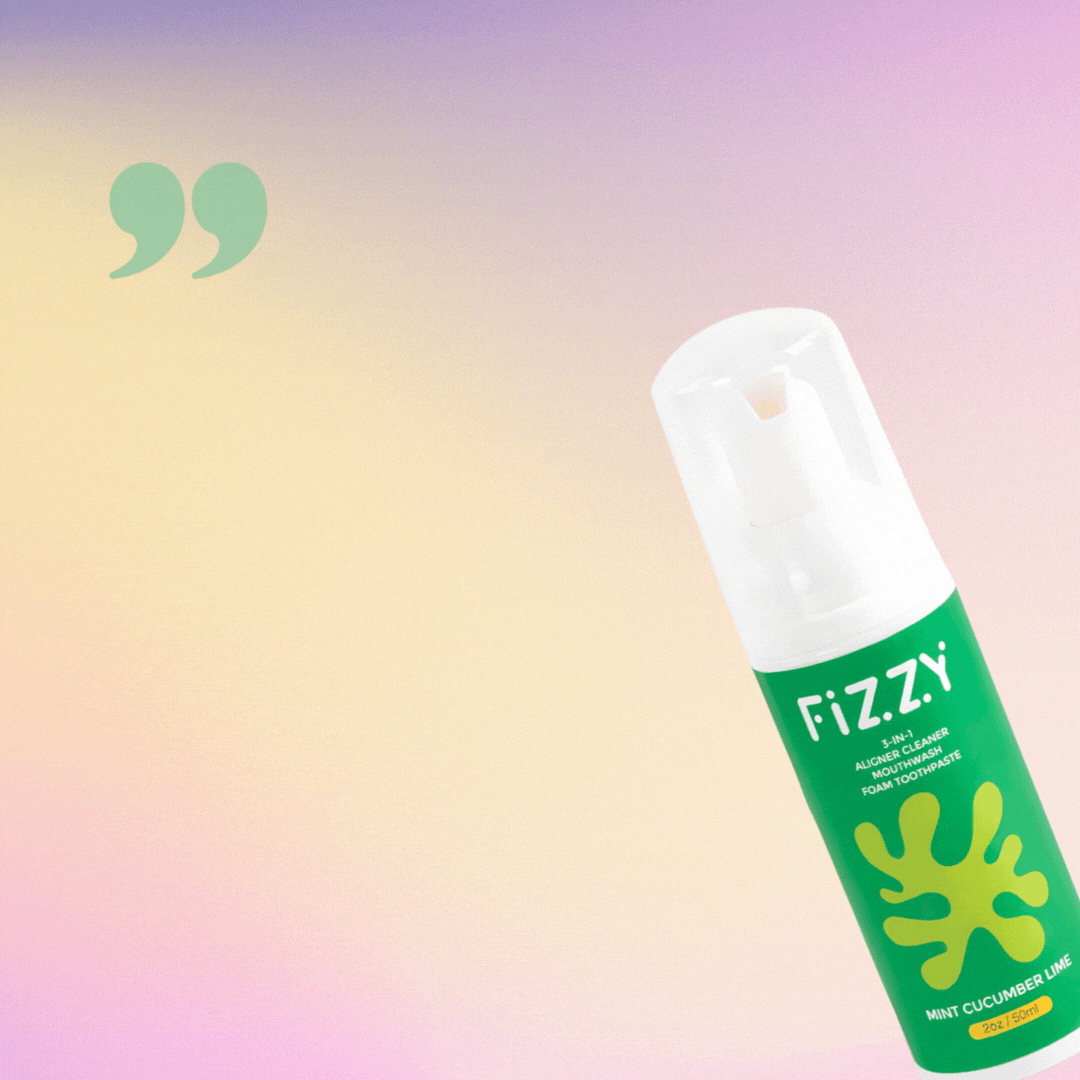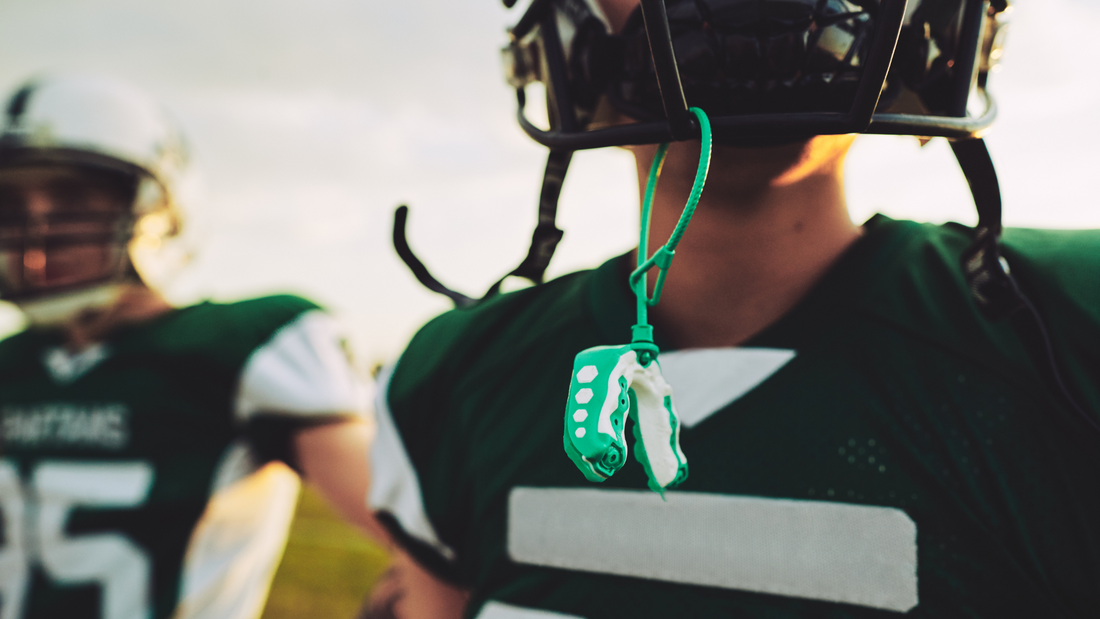
How to Clean Mouth Guard
Inside this Article:
You've got a night guard to combat teeth grinding and TMJ or protect your teeth during sports like football, hockey, or boxing. These powerful shields keep your teeth safe and sound. But here's the question: Have you ever wondered how to keep them fresh and clean? Fear not, fellow defender of dental hygiene! We're here to unlock the secrets of maintaining a dental night guard or sports mouth guard. From fighting teeth-grinding villains to battling bacteria, we've got the ultimate guide to ensure your oral guardians stay in tip-top shape. Get ready to unleash your cleaning superpowers and discover the secrets of best ways to clean your mouth guard!

Why should you clean mouth guard
Cleaning your mouth guard well is important for several reasons:
- Bacteria and germs: Your mouth is home to millions of bacteria, and these bacteria can transfer to your mouth guard during use. If not properly cleaned, the mouth guard can become a breeding ground for bacteria, increasing the risk of infections and illnesses.
- Bad breath: Bacteria and food particles trapped on the mouth guard can contribute to bad breath or an unpleasant taste in your mouth. Regular cleaning helps remove these odor-causing substances, keeping your breath fresh.
- Oral health: A dirty mouth guard can reintroduce bacteria and plaque back into your mouth, potentially leading to dental issues such as cavities, gum disease, or tooth decay. Cleaning the night or sports mouth guard helps maintain good oral hygiene.
- Prolonged durability: Regular cleaning and maintenance can help extend the lifespan of your mouth guards. Proper care prevents the buildup of stains, odors, and material degradation, ensuring that the mouth guard remains effective and durable over time.
- Personal comfort: A clean mouth guard feels more comfortable to wear. Without the buildup of debris and bacteria, you can enjoy a fresh and hygienic oral experience during sports or other activities.
Overall, cleaning your sleep mouth guard well is essential to maintain oral health, prevent infections, and ensure a pleasant and hygienic experience while using the mouth guard.
Research has shown that dirty or contaminated mouth guards can contribute to the transmission of various bacteria and viruses, potentially leading to illness or infection. Studies have focused on the presence of bacteria such as Staphylococcus aureus, Streptococcus mutans, and Escherichia coli on bite guards, which can be associated with oral and systemic health issues. These bacteria can thrive in the warm and moist environment of a mouth guard, increasing the risk of bacterial overgrowth and subsequent transmission. Furthermore, improper cleaning and storage of mouth guards can promote the growth of fungi and other microorganisms, adding to the potential health risks. Therefore, maintaining proper hygiene and regularly cleaning and disinfecting mouth guards is crucial to reduce the risk of sickness and maintain oral health.
You should disinfect your mouth guard after being sick, such as strep throat, flu, Covid 19
Disinfecting your mouth guard after being sick is important for several reasons:
- Bacterial and viral contamination: When you're sick, your mouth and throat can harbor bacteria and viruses that can be transferred to your mouth guard. Disinfecting the bite guard helps eliminate these pathogens and reduces the risk of recontamination.
- Preventing reinfection: Certain illnesses, like strep throat or colds, can be caused by specific bacteria or viruses. If you don't properly clean and disinfect your mouth guard after being sick, you may reintroduce these pathogens back into your system, potentially prolonging your illness or increasing the risk of reinfection.
- Hygiene and oral health: Regularly cleaning and disinfecting your mouth guard helps maintain good oral hygiene. Bacteria and other microorganisms can accumulate on the surface of the mouth guard, leading to unpleasant odors, dental plaque, or even gum disease. Disinfection helps eliminate these microbes, keeping your mouth guard clean and your oral health in check.
- Prevention of cross-contamination: If you share your mouth guard with others, it becomes even more crucial to disinfect it after being sick. Sharing a contaminated mouth guard can spread pathogens and increase the risk of infecting others.
By disinfecting your mouth guard after being sick, you reduce the chances of recontamination, promote oral hygiene, and help prevent the spread of infectious diseases.
How to clean sports mouth guard
Here's a simple process to sterilize your dental guard effectively:
- Rinse immediately after wearing: Start by rinsing your mouth guard with warm water to remove any visible debris or saliva.
- Pump: Apply 1-2 pump of Fizzy 3-in-1 Aligner Cleaner to your mouth guard. Let it sit for a few minutes.
- Brush (optional) : Use a soft-bristle toothbrush to gently brush the entire surface of your mouth guard for deeper cleaning. Pay extra attention to the areas that come into contact with your teeth and gums.
- Rinse again: After soaking, thoroughly rinse your mouth guard with clean water.
- Air dry: Place your mouth guard in a clean and well-ventilated area to air dry completely. Avoid storing it in a closed container or wet environment, as this can promote bacterial growth.
- Store properly: Once dry, store your mouth guard in a clean, ventilated container that allows air circulation. Avoid placing it in a location where it can be exposed to bacteria or contaminants.
How often should I clean my mouthguard
It is recommended to clean your mouth guard immediately after each use. Regular cleaning helps to remove bacteria, saliva, and debris that can accumulate on the surface of the mouth guard. This helps maintain good oral hygiene and prevent the growth of harmful bacteria. Additionally, proper cleaning helps prolong the lifespan of the mouth guard and ensures its effectiveness in providing protection during sports or other activities.
You should also clean your mouthguard if you haven't used it for a long time. Over time, dust, bacteria, and other contaminants can settle on the surface of the mouthguard, which can potentially lead to hygiene issues or unpleasant odors. Cleaning the mouthguard before using it again ensures that it is fresh, clean, and ready for use.
What can I use to clean my mouth guard?
There are several methods and products you can use to clean your mouth guard effectively. Here are some options:
- Fizzy 3-in-1 Aligner Cleaner, Mouthwash and Toothpaste: It doesn’t contain alcohol, paraben or fluoride, and makes your mouth guard squeaky clean! No water needed to clean your retainers, clear aligners, mouth guard or dentures. All you need to do is to pump some foam on your retainer, let it sit for a few minutes and rinse with water. For deeper cleaning, use a soft bristle brush to gently brush every detail and corner. It can be also used as a mouthwash, breath freshener and foam toothpaste. Since it’s also TSA compliant and travel friendly so you can easily put it in your gym bag and clean your mouth guard after each training session and don't have to wait until you get home.
- Mild soap and water: Using a mild soap and warm water, gently scrub your mouth guard with a soft toothbrush. Rinse thoroughly afterward.
- Denture cleaner tablets: Dissolve a denture cleaner tablet in a glass of water according to the package instructions. Submerge your mouth guard in the solution and let it soak for the recommended time. Rinse thoroughly afterward.
- Hydrogen peroxide solution:
Hydrogen peroxide can be used to clean mouth guard, but you need to be careful and follow some important guidelines:
- Dilute Properly: Before using hydrogen peroxide to clean your mouth piece, mix it with water. A common recommendation is one part hydrogen peroxide with three parts water. This reduces its strength and lowers the risk of any potential problems.
- Limit Exposure Time: Don't let your mouth piece sit in hydrogen peroxide for too long. Extended exposure can weaken or damage the aligner material. Usually, a short soak or rinse is enough for cleaning. Always follow the time recommended by your orthodontist or Invisalign.
- Rinse Thoroughly: After cleaning with hydrogen peroxide, rinse your dental guard well with water. This ensures that no leftover hydrogen peroxide remains on them before you put them back in your mouth.
- Avoid Overuse: While hydrogen peroxide can help remove bacteria and stains, don't use it too often. Using it too much can make the aligners brittle or degrade over time.
- Baking soda paste:
Baking soda is a safe option for cleaning mouth guard, but it might not be as effective as specialized cleaning products for tough stains or deep cleaning. Here's a simple guide on how to use baking soda to clean your aligners:
- Create a baking soda paste: Mix a small amount of baking soda with water to make a paste. The paste should be thick enough to spread easily but not too watery.
- Gently brush the aligners: Apply the baking soda paste to a soft-bristled toothbrush or a toothbrush specifically for cleaning aligners. Gently brush the mouth guard, covering all surfaces inside and outside.
- Rinse thoroughly: After brushing with the baking soda paste, rinse the aligners thoroughly with water. Make sure there are no baking soda particles left on the aligners before you put them back in your mouth.
- Avoid excessive scrubbing: Although baking soda is generally gentle, don't scrub the aligners too hard to avoid any potential damage to the material.
What to avoid to clean sport mouth guard?
When cleaning your mouth guard, there are certain things you should avoid to prevent damage or contamination:
- Hot water: Avoid using hot water to clean your mouth guard. High temperatures can warp or deform the mouth guard, compromising its fit and effectiveness. Especially if you've used hot water to mold your mouth guard, you know how much damage it would cause. Stick to cool or lukewarm water instead.
- Harsh chemicals: Refrain from using harsh chemicals such as bleach or alcohol-based products to clean your mouth guard. These substances can degrade the materials of the bite guard and potentially irritate your mouth or throat.
- Abrasive materials: Avoid using abrasive materials like hard-bristled toothbrushes or abrasive cleaners on your mouth guard. These can scratch or damage the surface of the mouth guard, creating spaces for bacteria to accumulate.
- Sharing: Never share your mouth guard with others or use someone else's mouth guard. Sharing mouth guards can increase the risk of spreading bacteria, viruses, or other pathogens, potentially leading to infections or illnesses.
- Storing in unsanitary conditions: Make sure not to store your mouth guard in unsanitary conditions or with dirty equipment. Store it in a clean, dry container, away from other items that may contaminate it.
By avoiding these practices, you can effectively clean your mouth guard without compromising its integrity and hygiene.
Summary
Regularly cleaning your mouth guard is crucial for maintaining oral health, preventing infections, and ensuring a hygienic experience. Bacteria and germs can transfer from your mouth to the mouth guard during use, making it a breeding ground for harmful microorganisms. Cleaning the mouth guard helps remove these bacteria, reducing the risk of illnesses and bad breath. Additionally, a dirty mouth guard can reintroduce bacteria and plaque into your mouth, potentially leading to dental issues. Proper cleaning and disinfection also help prolong the durability of the mouth guard, ensuring its effectiveness over time. It is recommended to clean your mouth guard immediately after each use and also if it hasn't been used for a long time to prevent the accumulation of contaminants. When cleaning, avoid using hot water, harsh chemicals, or abrasive materials that can damage the mouth guard. Proper cleaning and disinfection are especially important after being sick, as it helps eliminate pathogens, prevents reinfection, and maintains oral hygiene. By following these cleaning practices, you can enjoy a fresh, clean, and hygienic mouth guard during sports or other activities, reducing the risk of sickness and promoting oral health.
Reference:
Microbiota Found in Protective Athletic Mouthguard
Microbial Contamination and Disinfection of Sport Mouthguard: In Vitro Study


